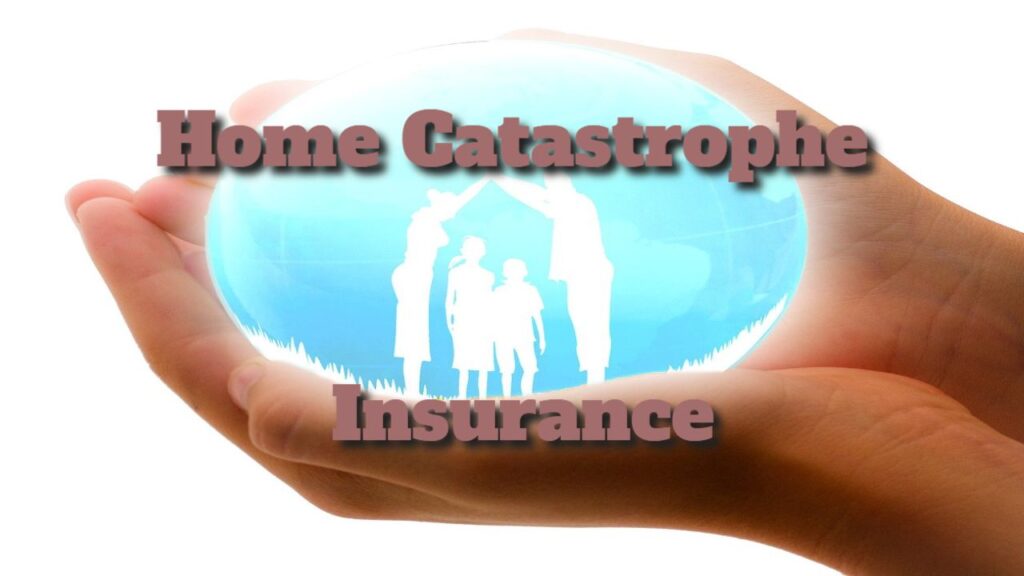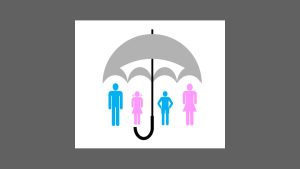Home Catastrophe Insurance Covers Natural Disasters
If you’ve ever watched a disaster movie, you know how destructive volcanic eruptions and earthquakes can be.
Isn’t the entertainment industry hyping these disasters? While Hollywood goes to extremes. Natural disasters cost the US an average of $80.7 billion annually, which may surprise you (via NOAA).
Every house has a strategy in place in case of a catastrophic occurrence, such as rising floodwaters or earthquakes that may shake the foundation.
Even if your homeowner’s insurance covers a variety of situations, it may not cover all known disasters. Special disaster insurance coverage is required to lower the cost of repairs.
Additional coverage from catastrophic insurance can protect you and your property from disasters such as hurricanes, floods, earthquakes, tornadoes, volcanoes, and sinkholes.
On the other hand, some homeowners acquire supplementary fire insurance to protect their homes and goods even further.
Individual supplemental insurance policies are available for disasters; some are legally mandated in your area.
What exactly constitutes disaster insurance?
You may obtain additional coverage through catastrophic insurance if your home or valuables are damaged due to a natural disaster such as a flood, hurricane, earthquake, tornado, volcano, or sinkhole.
It also protects against man-made calamities like civil unrest, terrorist assaults, and explosions. Many of these tragedies are not covered by standard homeowners insurance plans and must be covered by a separate policy add-on.
What exactly is the definition of private disaster insurance?
Purchasing a private umbrella or catastrophe insurance has nothing to do with specific disasters, but it offers additional liability protection in various situations.
If you or a family member is injured, it is an add-on to your house or auto insurance paying medical bills.
What is the process for getting catastrophic insurance?
Standard homeowner’s insurance policies do not cover many disasters, so you may need supplemental insurance to acquire the required coverage.
Catastrophic insurance includes various supplemental insurance plans that supplement your homeowner’s policy, such as storm types and coverage for all covered calamities. Individual additional coverage is available for a variety of disasters, including:
Earthquake
Floods
Hurricanes
Landslides
Mudslides
Riots
Landslides
Terrorism
Tsunamis
Vandalism
Fires in the forest
Naturally, some of the aforementioned situations happen far more often than others.
Consider yourself lucky if you live in a high-risk area. Sometimes, your state government may require you to obtain a separate catastrophic insurance policy to improve disaster readiness. Supplemental insurance is commonly used in high-risk areas such as coastlines, tornado zones, and earthquake belts.
How do I keep my home secure from natural disasters?
Aside from full coverage insurance, you can take a few other steps to protect your property from significant storms. All homes should follow these guidelines, which span anything from routine maintenance to replacing damaged roof tiles to mitigate the effects of even minor storms.
Bring any garden equipment or outdoor furniture that high winds could blow indoors.
Check for cracks or leaks in weatherstripping and repair as needed to keep water out.
Rain gutters should be cleaned at least once a year so that rainfall can drain properly.
Maintaining your home regularly will help to reduce wear and tear.
Appliances can be protected from flooding by elevating them a few inches.
Replace broken or loose roof shingles to improve your home’s storm protection.
All outside constructions should be securely fastened to the ground or foundation, including carports, porches, and sheds.
Overhanging branches should be cut once a year to prevent them from falling on your property during a storm.
Purchase more current garage door models that are wind-resistant.
Keep these tasks on your to-do list all year, not just during the hurricane and tornado season. Because homeowners insurance plans usually reward proactive mitigation efforts, improving your home’s storm protection can save you money.
While you shouldn’t expect a Hollywood-style tsunami to reach your neighbourhood anytime soon, an insurance consultant can advise you on disaster protection for your home.
The Article Home Catastrophe Insurance Covers Natural Disasters Appeared First On Survival Avenue.
The post Home Catastrophe Insurance Covers Natural Disasters appeared first on Survival Bite.
The Article Home Catastrophe Insurance Covers Natural Disasters was found on https://limitsofstrategy.com




Your exploration of home catastrophe insurance in regards to natural disasters raises several compelling points, particularly about how we often underestimate the true potential impacts of such calamities despite their prevalence in media. It’s intriguing to think about how disaster movies can indeed desensitize audiences to real-world risks. While they dramatize events for entertainment value, the stark reality is that disasters cause genuine devastation, both in terms of human life and economic cost.
You’ve touched on something really important. It’s interesting how disaster movies create this detachment from reality. They focus on the sensational aspects without diving into the aftermath. When we watch a hurricane or earthquake unfold on screen, we might feel adrenaline, but we often forget that these events leave behind communities in deep distress.
You’ve touched on something really important. It’s so true how disaster movies create that sense of detachment. They often glamorize chaos while neglecting the profound human impact and the long road to recovery afterward. It’s fascinating how these films can thrill us with high-stakes drama but at the same time gloss over the emotional and physical toll it takes on communities.
You raise some really interesting ideas about the impact of media, especially disaster movies, on our perceptions of real-world catastrophes. I think it’s fascinating how films often depict these events in a way that’s both captivating and chilling but can lead to a kind of emotional detachment from the realities involved. It reminds me of how we sometimes binge-watch crisis-focused shows and think we’re being informed, when in reality, they don’t capture the full scope of what people experience during actual disasters.